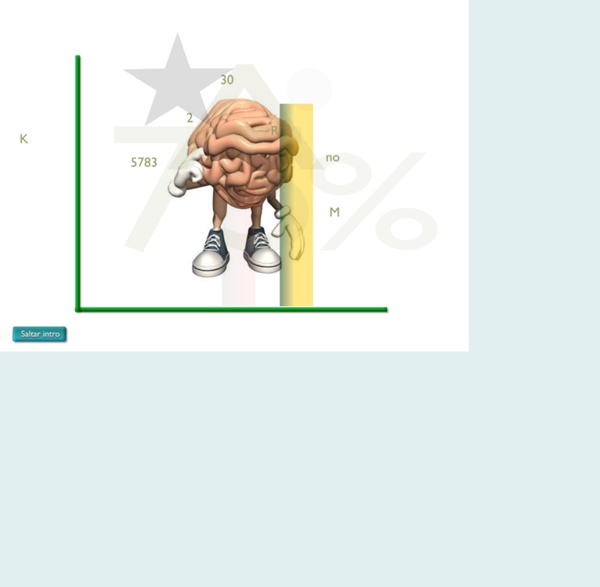



http://www.madridsalud.es/interactivos/memoria/memoria.php
Akinator, El Genio de la Web Nueva pestaña Eye Can Learn Improve your Visual Information Process Skills:Perception, Tracking, Focusing, and Eye Teaming Click on the Exercises Below Software de Mind Mapping - Crear Mind Maps en línea Organización sencilla Alzheimer's Foundation of America - National Memory Screening National Memory Screening Day and our year-round Community Memory Screening and Awareness-Raising Education: The Road to Early Detection and Care* (AFA C.A.R.E.S.) program are part of AFA’s national initiative to promote early detection and intervention for those concerned about memory loss as well as to educate the public about successful aging. With these initiatives, our goals are to: Provide free, confidential memory screenings to those with memory concerns or who want to check their memory Eliminate the stigma and fears associated with dementia Encourage those with memory problems to follow up with an exam by a physician or other qualified healthcare professional for an accurate diagnosis, treatment, social services and community resources Educate the public about Alzheimer’s disease and successful aging Alleviate the fears of those who do not have a problem Involvement is simple:
HEMISPHERIC INTEGRATIVE THERAPY IN LANDAU-KLEFFNER SYNDROME: APPLICATIONS FOR REHABILITATION SCIENCES, International Journal of Neuroscience Case Study 2005, Vol. 115, No. 8 , Pages 1227-1238 (doi:10.1080/00207450590914554) VICTOR M. PEDRO1,2 and GERRY LEISMAN3† 1Department of Clinical Sciences, University of Bridgeport, Bridgeport, Connecticut, USA 2Victor Pedro Institute, Cranston, Rhode Island, USA Descargar Cuentos Infantiles en PDF Descarga los Cuentos infantiles en formato PDF Cuentos clásicos Cuentos Ilustrados Otros cuentos Cuentos de Canterbury Cuentos populares mexicanos 2.1.1. Trastornos de lectoescritura - LOGOPEDIA, ORIENTACIÓN Y PSICOMOTRICIDAD SAFA ANDUJAR La lectura es un proceso inferencial, constructivo, complejo, caracterizado por su automatización y en el que se puede hablar de la existencia de dos etapas (la identificación/ reconocimiento de las palabras, donde se incluye procesos de identificación de letras y/o palabras, pronunciación y acceso al significado de las palabras) y cuatro fases (el procesamiento subléxico o preléxico o fase de descodificación y reconocimiento, el procesamiento léxico o fase de acceso al significado, el procesamiento supraléxico o fase de comprensión de proposiciones y el procesamiento de texto o fase de comprensión del texto). Un proceso que participa en la identificación y acceso al significado es la descodificación, que se considera el proceso previo al significado, mediante el cual letras, conjuntos de letras y palabras son trasladadas a sonidos (o, a veces, en el caso de las letras, son nombradas). Se entiende por DISLEXIA la dificultad específica para la lectura. Dislexias centrales (adquiridas):